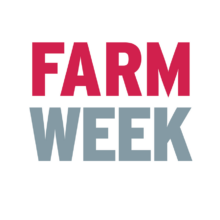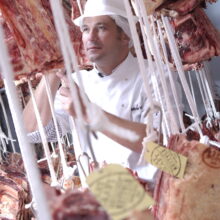Growing Demand For Healthy ‘Greens’ Presents New Business Opportunities For Our Local Producers

It’s time to talk about vegetable production and consumption. Medical studies show that it isn’t just a case of ‘vegetables will do you good’, put simply, you are shortening your life if you don’t eat enough and Northern Ireland has the lowest. level of vegetable consumption in the UK.
We’ve been supporting Peas Please in its endeavours to promote vegetables to shoppers and families. Their recent report, Veg Facts, found that UK vegetable production dropped by a worrying 12 percent between 2017 and 2018, the lowest level of domestic horticulture production for over 20 years. This is concerning at this time when surveys have shown that UK consumers are keen on eating more locally sourced food that offers health and immunity benefits.
According to Veg Facts, UK growers supply just 52.7 percent of vegetables, with the majority being imported from Spain and the Netherlands. Our over dependenceon regions which are sensitive to climate change was highlighted last year when adverse weather in Spain,and especially around the Murcia region that grows lettuce and tomatoes, undermined the harvest and supplies to the UK.
Under lockdown, the report continues, 25 percent of households with children expressed concern about problems in accessing enough fruit and vegetables. A third of children under 11 years of age were eating less than one portion of veg a day.
There is clearly an urgent need for a national plan for horticulture that would encourage greater consumption and also promote production across the nation, as suggested by the Food Foundation. There should be greater scope for growers and farmers here to invest in local production of vegetables and seasonal fruit that will help to improve public health especially in children.
What the lockdown has also shown is the need for a strategic focus on UK food security. This was particularly apparent in the panic buying that was such an alarming feature during the early stages of the Covid 19 crisis. The report says that six weeks after the start of lockdown five million households experienced food insecurity, with 72 percent of parents receiving free school meal vouchers reporting that they were worried about getting enough veg.
Our food system is evidently very vulnerable and becoming increasingly so in terms of fruit and vegetables and also in the dependence on migrant workers. Further threats to these important sectors are developing from the looming Brexit and the ongoing climate change. Vegetable production, furthermore, has positive environmental benefits.
Another significant report has found important trends for food production here post lockdown. Paymentsense indicated that, whilst consumers are looking to spend less once lockdown is lifted, 62 percent said they be staying loyal to the local businesses that continued to help them through lockdown. What’s more, 53 percent agreed they’ll support local restaurants and cafés too.
It says 2020 will go down as the year of the “loyally conscious consumer” who understands the impact their decisions have on small companies in the wake of the pandemic and are keen to support local farmers, other food producers and smaller retailers. They’ve come to appreciate the farmers, producers and farmers who had supported them by introducing doorstep delivery services.
This trend presents significant opportunities for local producers and growers to develop their products and to explore new opportunities, for instance, in sectors such as horticulture. Many business analysts are comparing the position our economy faces now with the last recession of 2009, but I hope we are in a different place. There has been a rise in ‘scratch cooking’, heightened focus on sustainability and a new interest in health and immunity. Let’s hope that this leads to an increase in vegetable production and consumption and longer healthier lives for all.








